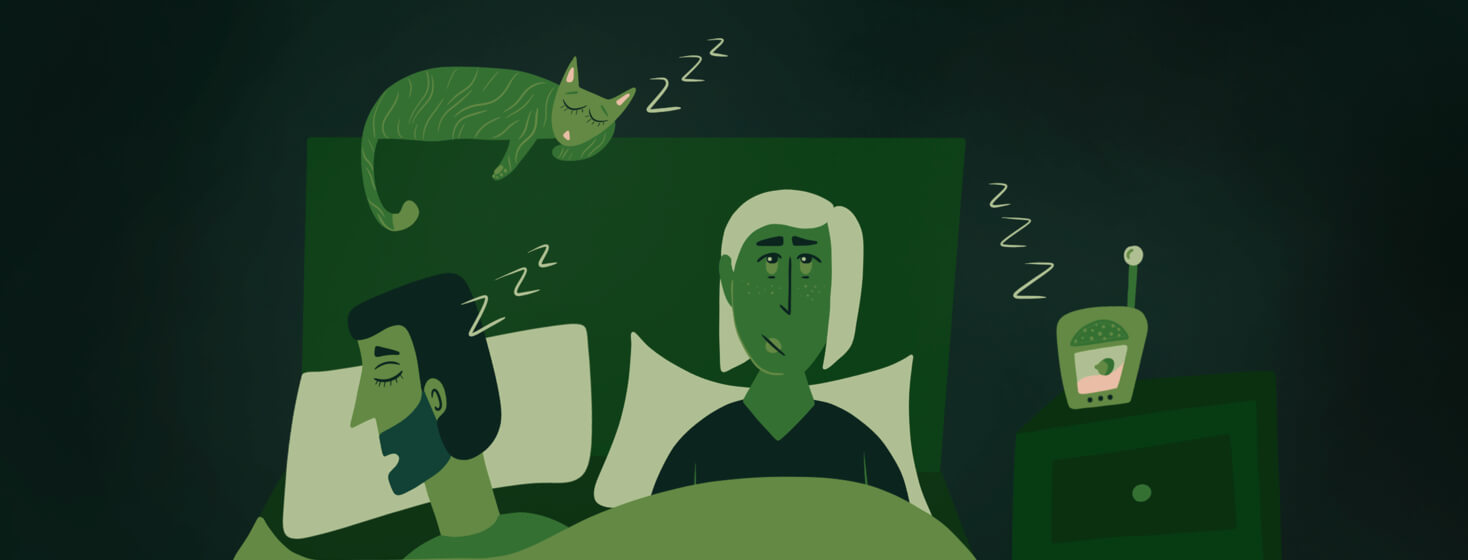Tell Me You Have Insomnia Without Telling Me You Have Insomnia
The nighttime is stressful.
My bed and/or bedroom give me anxiety.
If I don't follow my sleep routine, I struggle to fall asleep or wake up often and abruptly.
Even if I do follow my sleep routine, I struggle to fall asleep or wake up often and abruptly.
I feel like I am constantly drowsy
I did not experience any new sense of sleep deprivation when I became a mother. It just reminded me of the height of my struggles with a sleep disorder.
I often think of how envious I am watching my partner sleep during the night.
I often think of how envious I am watching my toddler sleep during the night.
I often think of how envious I am watching my dog sleep during the day and the night.
I can’t remember what it’s like to not be tired
Every day blends into the next.
The middle of the night is sometimes late night and sometimes early morning, sometimes both and sometimes neither.
Caffeine, at the right dose, at the right time of day, is critical to my success in functioning.
Sometimes I exercise just to feel more awake.
Sometimes I go for a walk just to feel more awake.
I schedule my workday intentionally based on the hours I generally feel most alert and can think more creatively.
Does this sound familiar?
Friends, if you can relate to any of these thoughts, my guess is that you, too, live with insomnia.
We recently asked out Facebook community how they would describe insomnia, and we heard so many varieties of exhaustion, hyper-arousal, restlessness, anxiety, and tossing and turning.
The responses really made me think about my own nearly lifelong battle with a sleep disorder and how often I justify to myself that I feel the way I feel because I live with insomnia.
Life with insomnia has become my normal
Sometimes, I feel like my life has been like this for so long that these thoughts and feelings and actions and behaviors are just my version of normal or routine. Things like caffeine intake and movement are tools used to help me feel energized and more like myself, rather than me wading through the thick fog of exhaustion.
I honestly forget that my partner, and my family members, and most of my friends don't have to think like this or adjust their behaviors accordingly because they generally sleep decently most nights. And that decent is so subjective as a term. I know for sure what I'd consider a decent's nights rest would be considered terrible or unacceptable for others.
How has insomnia influenced who I am?
And this makes me wonder – does insomnia make me more patient and more flexible, or more frustrated and resentful? Most of the time, I've come to peace with the fact that I carry both sets of feelings.
Insomnia makes me more empathetic, more understanding, and more exhausted (literally and figuratively). Navigating my life with a sleep disorder means I am constantly planning, thinking, reworking, and adjusting, but those skills have bled over to several other areas of my life in which my experiences overall feel like they've helped me to become a more adaptable person.
Have you thought about this before? Do you think of insomnia as something that has a silver lining or something that constantly drags you down and makes your life more challenging?

Join the conversation